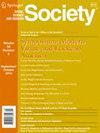令人费解的信仰:为什么许多美国人不信任科学?
IF 1.4
4区 社会学
Q2 SOCIAL SCIENCES, INTERDISCIPLINARY
引用次数: 0
摘要
为什么如今在美国对科学和专业知识的不信任如此普遍?本文认为,除了互联网在促进错误信息传播、信息孤岛、验证古怪观点等方面做出的贡献之外,最重要的因素来自于我们未能向国民灌输批判性科学思维的基本知识及其无数非凡的成就。本文章由计算机程序翻译,如有差异,请以英文原文为准。
Puzzling Beliefs: Why Do Many Americans Mistrust Science?
Why is there such a pervasive mistrust of science and expertise in the United States these days? This essay argues that, alongside the contribution made by the internet in facilitating the spread of misinformation, information silos, validation of kooky views, and so forth, the most significant factor derives from our failure to inculcate in our citizenry the basics of critical scientific thought and of its myriad extraordinary accomplishments.
求助全文
通过发布文献求助,成功后即可免费获取论文全文。
去求助
来源期刊

Society
Multiple-
CiteScore
1.30
自引率
11.10%
发文量
132
审稿时长
12 weeks
期刊介绍:
Founded in 1962, Society enjoys a wide reputation as a journal that publishes the latest scholarship on the central questions of contemporary society. It produces six issues a year offering new ideas and quality research in the social sciences and humanities in a clear, accessible style.
Society sees itself as occupying the vital center in intellectual and political debate. Put negatively, this means the journal is opposed to all forms of dogmatism, absolutism, ideological uniformity, and facile relativism. More positively, it seeks to champion genuine diversity of opinion and a recognition of the complexity of the world''s issues.
Society includes full-length research articles, commentaries, discussion pieces, and book reviews which critically examine work conducted in the social sciences as well as the humanities. The journal is of interest to scholars and researchers who work in these broadly-based fields of enquiry and those who conduct research in neighboring intellectual domains. Society is also of interest to non-specialists who are keen to understand the latest developments in such subjects as sociology, history, political science, social anthropology, philosophy, economics, and psychology.
The journal’s interdisciplinary approach is reflected in the variety of esteemed thinkers who have contributed to Society since its inception. Contributors have included Simone de Beauvoir, Robert K Merton, James Q. Wilson, Margaret Mead, Abraham Maslow, Richard Hoggart, William Julius Wilson, Arlie Hochschild, Alvin Gouldner, Orlando Patterson, Katherine S. Newman, Patrick Moynihan, Claude Levi-Strauss, Hans Morgenthau, David Riesman, Amitai Etzioni and many other eminent thought leaders.
The success of the journal rests on attracting authors who combine originality of thought and lucidity of expression. In that spirit, Society is keen to publish both established and new authors who have something significant to say about the important issues of our time.
 求助内容:
求助内容: 应助结果提醒方式:
应助结果提醒方式:


